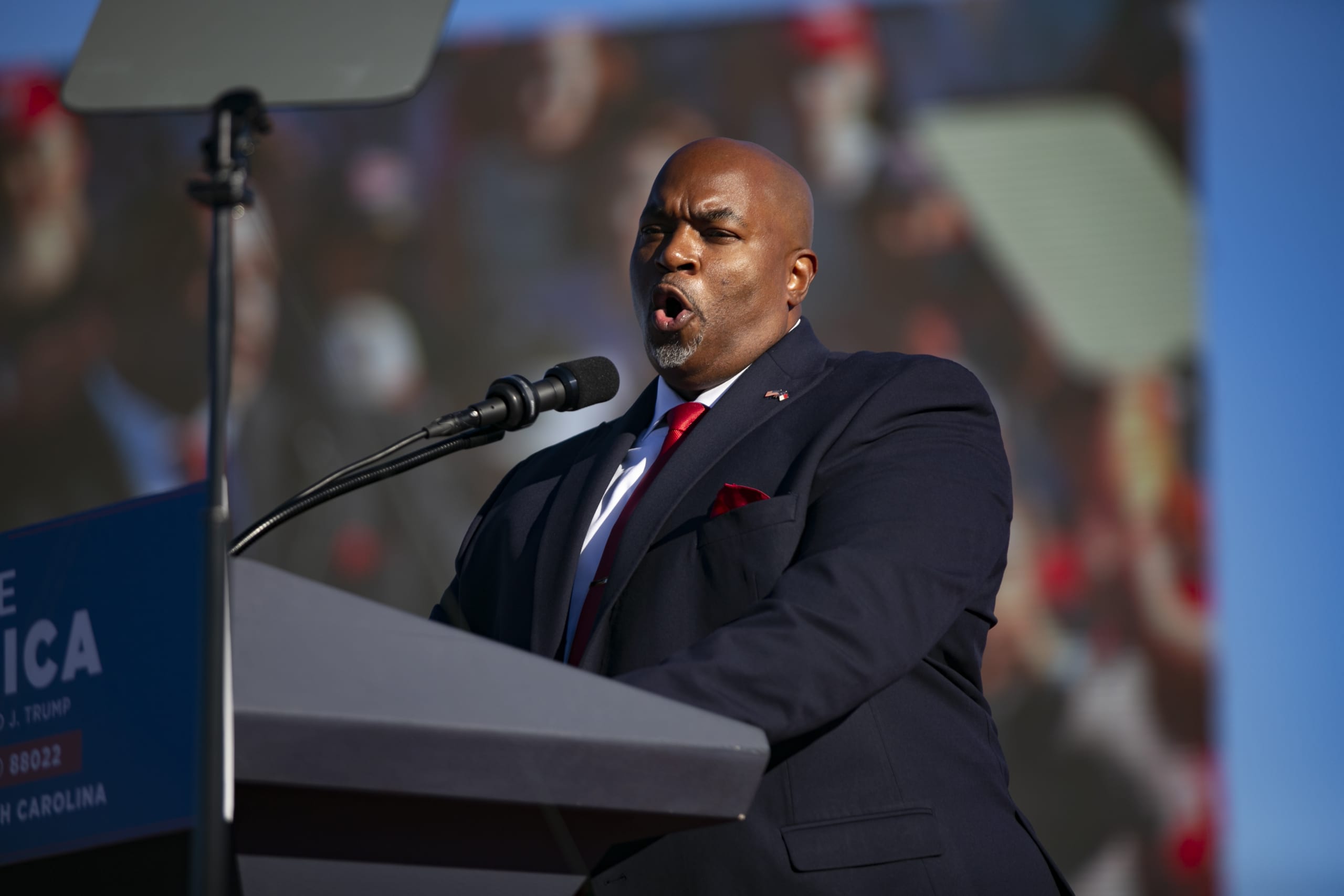
An Op-Ed by Trends News
Meet Mark Robinson, a Republican running for governor in North Carolina, whose controversial stance on reparations has ignited widespread debate. Robinson, currently serving as North Carolina’s lieutenant governor, has raised eyebrows with his belief that Black people should be paying reparations. While his views may seem bizarre, even by the modern GOP’s standards, his candidacy highlights the complex landscape of today’s political sphere.
The Unconventional Republican
Robinson has garnered attention not only for his stance on reparations but also for his controversial statements on various topics. He has dismissed the threat of Covid-19, denied the existence of systemic racism, and made outlandish claims about the movie “Black Panther.” This self-proclaimed right-wing politician has gone as far as insulting former President Obama and referring to Michelle Obama as “a man.” Robinson’s rhetoric has positioned him as a figure reminiscent of Candace Owens, provoking strong reactions and making him a noteworthy candidate for North Carolina’s governorship.
A Closer Look at Robinson’s Reparations Stance
Robinson’s controversial speech in 2021 gained traction on Black social media platforms, where he opposed reparations by suggesting that Black people owe a debt to their ancestors rather than being owed reparations themselves. He emphasized the sacrifices made by those who fought for freedom, stating that the beneficiaries of that freedom should be the ones who owe a debt. While some may agree with the sentiment of honoring the sacrifices made by ancestors, Robinson’s conclusion and implication of this debt were met with mixed reactions.
However, it is essential to note that Robinson’s perspective only scratches the surface of the reparations conversation. While he acknowledges a debt to ancestors, he fails to recognize the centuries of unpaid labor and economic exploitation endured by enslaved Black Americans.
The Case for Reparations
The mention of reparations often triggers a contentious response from Republicans, who present themselves as champions of economic reality. However, the economic impact of slavery cannot be denied. Slavery was a major driver of the Southern economy, with the South producing a significant share of the world’s cotton and contributing to American economic growth. Enslaved individuals generated extraordinary wealth for their enslavers, leading to the creation of millionaires and propelling economic growth.
The argument for reparations stems from the fact that millions of Black Americans were trapped in a system of unpaid labor, while others profited immensely from their exploitation. Slavery was not only a grave human rights violation but also an economic engine that shaped the nation’s wealth and development. Acknowledging this history raises questions about the moral responsibility to address past injustices through reparations.
Conclusion
Mark Robinson’s candidacy as a Republican running for governor in North Carolina has sparked intense discussion and debate. While his views on reparations may appear controversial, they underscore the urgent need to confront the legacy of slavery and address the economic disparities it created. The case for reparations is rooted in historical facts, highlighting the significant role slavery played in shaping America’s economy. As society grapples with these issues, it is crucial to engage in informed conversations that pave the way for a more equitable future.
FAQs
Q: What is Mark Robinson’s stance on reparations?
A: Mark Robinson, a Republican running for governor in North Carolina, opposes reparations and argues that Black people owe a debt to their ancestors for the sacrifices made in the fight for freedom.
Q: Why is there a debate around reparations?
A: The debate around reparations stems from the history of slavery and its economic impact. Advocates argue that the descendants of enslaved individuals deserve compensation for the injustices and wealth disparities resulting from centuries of unpaid labor.
Q: How did slavery contribute to the US economy?
A: Slavery played a significant role in shaping America’s economy, particularly in the Southern states. The labor of enslaved individuals fueled the growth of industries such as cotton production and contributed to the country’s overall economic development.
Editor’s Note: This article reflects the author’s opinions and is not a representation of Trends News as a whole. For more thought-provoking articles, visit Trends News.

